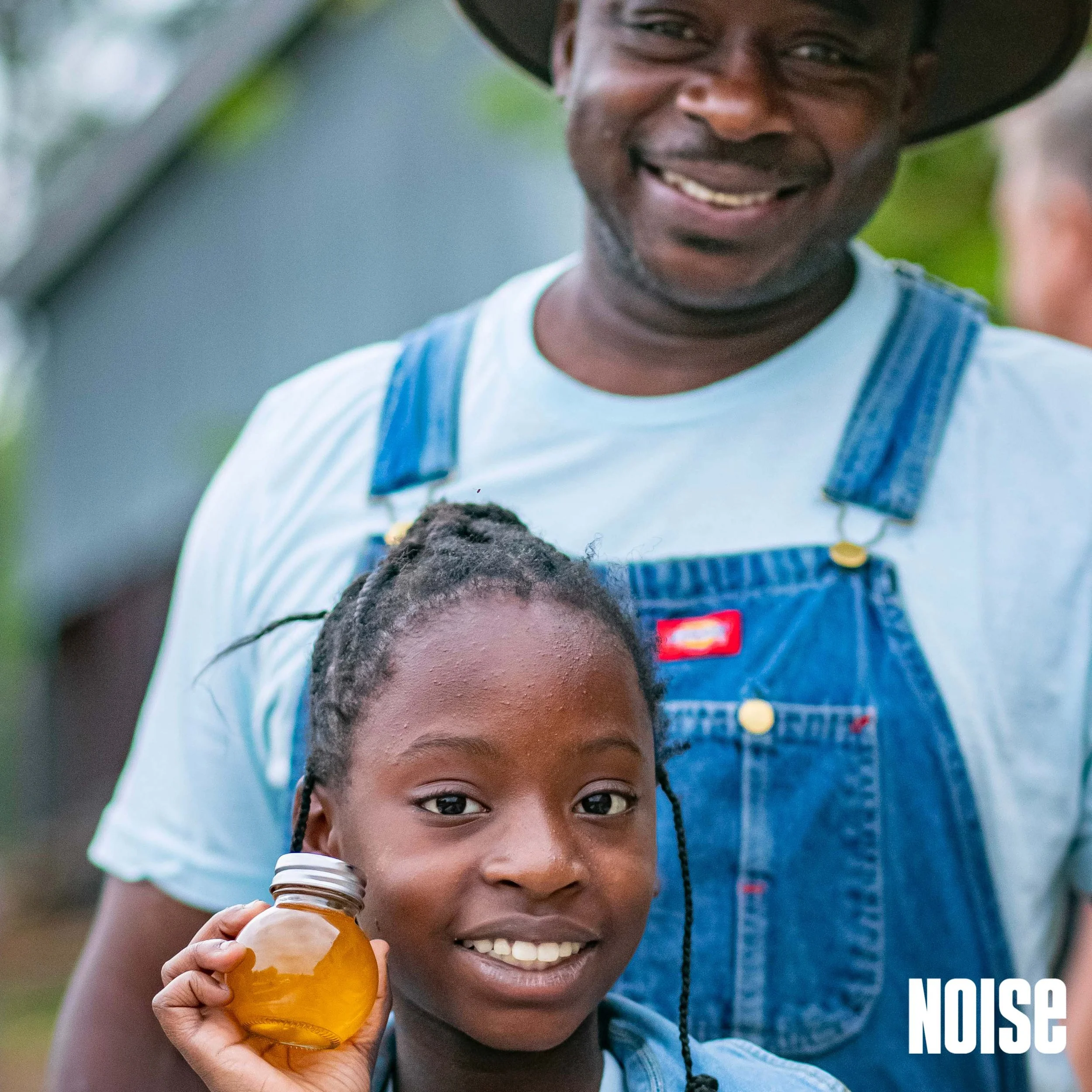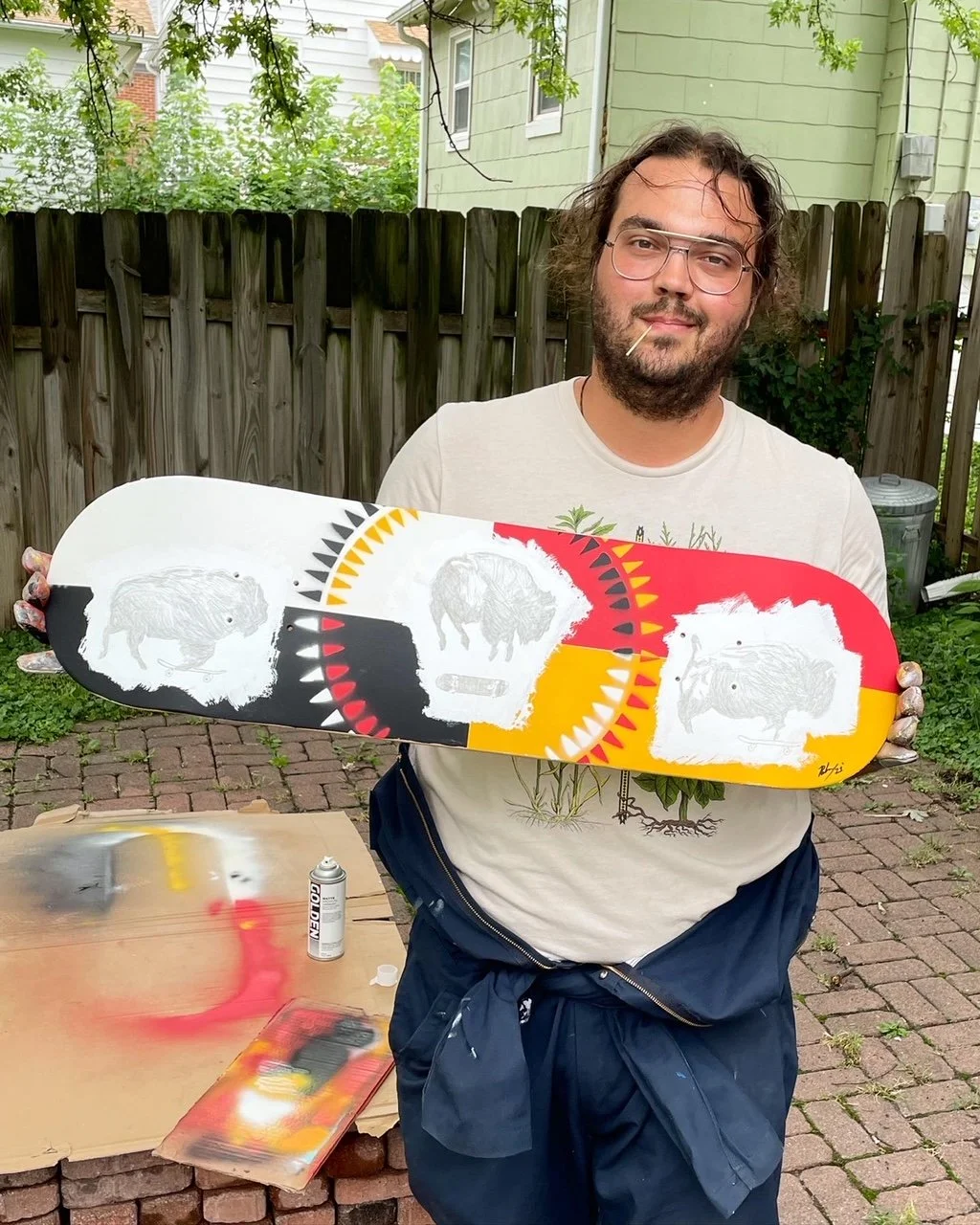In our latest podcast episode, NOISE culture reporter Ashley Salem and board vice president Emily Chen-Newton discuss the film, "From the Hood to the Holler," part of the Omaha Film Festival screening online through Apr. 2. Emily is from Kentucky where the documentary is set. The film, directed by @PatMcGeeFilms, follows the campaign of Charles Booker while he makes political history as a Black candidate from the west end of Louisville, Ky. -- which is like Omaha's north side-- in his attempt to unseat the powerful U.S. Senator Mitch McConnell. The podcast includes a curated list of @OmahaFilmFestvl entries picked for our NOISE audience.
Read MoreThis week’s warm weather may have inspired you to think about planting a garden, but you better act quickly. The date to start your seeds in pots is right around the corner, Mar. 10. NOISE has compiled a sample of local organizations who can teach you how to be part of the miracle of watching a seed turn into a vegetable.
Read MoreOur latest podcast episode is an homage to Black motherhood. Our guests on this episode, Pastor LaShea Pogee and foster parent Mercedez Langford Brown, chat with NOISE's Ashley Salem about the many dimensions of mothering.
Read MoreNew Podcast Live! As honey bees swarm around him, Clark Williams says working with bees makes him feel alive. His nine-year old daughter, Aaliyah Porter, plays with a collection of sticks several yards away as NOISE reporter Emily Chen-Newton interviews Clark about his bees.
Aaliyah is by no means afraid of the bees. Quite the contrary, she calls them her angels because she finds being with them so peaceful. Walking down the path away from the hives with his daughter leading the way, Clark muses about the many metaphors that bees give their keepers. "They take care of their queens." This is a metaphor for how communities need to take care of their sisters, mothers and daughters.
Read MoreFrom Leo Adam Biga: Depending on your point of view, Omaha has the infamy or distinction of twice being a microcosm on screen for systemic racism. Two documentaries made here more than half a century apart, the Academy Award-nominated A Time for Burning (1967) and the acclaimed Out of Omaha (2018), reveal hard truths about racial disparity still rarely seen in American cinema. Now, for the first time publicly, the films are being screened as a double feature Feb. 4 - 10 at Aksarben Cinema in the city that birthed them.
Read MoreThe streetcar would run from 10th Street as far west as 42nd Street and from Harney to Farnam Streets, with a northern extension to CHI Health Center Omaha.
Read MoreFor nearly 50 years, Herbie Husker has held a football in one hand and thrown up an “a-OK” sign with the other. But if you’ve paid close attention, you may have noticed a change. Now, Herbie’s left hand shows “we’re number one.” Why? Internet trolls and white supremacy groups have tried to turn the OK sign into a symbol of white power, claiming the three fingers up form a W and the circle and wrist form a P.
Read MoreNOISE presents its fourth installment in our series, “Black Legacy Families” by Leo Adam Biga. Perhaps no Black family in Omaha owns a creative lineage spanning as many disciplines as the Beasleys. John and Judy Beasley, their sons Tyrone and Michael and their grandchildren are variously actors, directors, writers, singers, musicians and artists. Four family members have done national stage and screen work. If you count professional athletics as a form of self-expression, then their accomplishments grow larger yet. At age 79, patriarch John will be making his Broadway debut this year. NOISE presents an in-depth look at a family of creative entrepreneurs with strong Omaha roots.
Read MoreAs fighters went through their paces one recent night at B&B Sports Academy, its co-owner, world welterweight boxing champion Terence “Bud” Crawford, got right in the mix, interacting with pros and amateurs alike. He coached boxers at the North Omaha gym, teased them, cajoled them, encouraged them.
Read MoreFlatwater Free Press - Nebraska homesteaders were poor and poorer, Catholic and Protestant. And almost uniformly white. Except for the homesteaders who settled in a place called Dewitty, near present day Valentine.
These homesteaders were Black. Some came from the South, lured by the promise of the 1904 Kinkaid Act – a kind of second version of the Homestead Act – that promised 640 acres of free land in the Nebraska Sandhills. Some came from Canada, where they had escaped to decades earlier. And some moved from Overton, near Kearney.
Read MoreNOISEmaker Leo Adam Biga sat down with new Creighton University athletic director Marcus Blossom.
Representation matters more than ever and while CU actually has a better track record of diversity in its coaching-admin ranks compared to fellow instate Division I schools UNL and UNO, it remains a very white institution in a very white city. That reality carries extra baggage in this era since CU borders African American, Native American and Latino communities whose populations are scarcely represented on campus.
There’s no telling what difference Blossom’s presence will make in building bridges and breaking barriers.
Read MoreIn front of a Girls Inc. crowd last month Jemison said, "I was so grounded in space" meaning outer space and then went on to tell her story to the audience. Dr. Mae Jemison, the first woman of color to become an astronaut, encouraged the young women in the audience to pursue their ambitions, no matter how far it took them.
As a young African American girl, Jemison was told by the world around her that she would never achieve her dreams. Yet, Jemison pursued her passions.
Read More“There is a quote from John Trudell, an AIM activist saying we are older than the concept of Indigenous or Native, we’re just human beings, “ says Nathaniel Ruleaux, artist and member of the Oglala Lakota Nation. He says that antiquated practices acted out in Hollywood and Art such as “Painting us like savages…and the Washington football team’s old name” lead to “incorrect and stereotypical representation of Native People.” We need to do better, he says.
On a warm September afternoon, NOISE culture writer, Michaela Wolf sat down with artist and founder of Unceded Artist Collective, Nathaniel Ruleaux on the land of the Umónhon and the Očhéthi Šakówiŋ. Like the name of the collective, this land is known as “Unceded” as it belonged to Indigenous Peoples and was never surrendered nor legally given to the U.S. Government. Ruleaux has pieces on display in the upcoming Native Pop-Art Show put on by the Willa Cather Foundation, 49 Minutes of Fame: An Exhibition of Native Pop-Art. Wolf and Ruleaux spoke about his work as well as his disciplined working process he shared on social media during the early days of the pandemic.
Read MoreWhen the University of Nebraska at Omaha hired Carrie Banks in 2020 to turn around its women’s basketball program, she became the only Black head coach at any of the state’s three universities that compete in Division I athletics. Banks, who is the first Black head coach in UNO women’s hoops history, tabbed Darryl Hudson from historically Black Jackson State as her top assistant. With assistant Tania Davis and director of basketball operations Trevon Tiggs, four of five staff members are African American, making Omaha Mavericks women’s basketball a national leader in representation.
Read MoreLaban Njuguna isn’t just bringing Kenyan coffee to Nebraska. He’s also bringing Kenyan leaders. Njugana is a member of Nebraska’s Commission on African American Affairs. Through that role and his business, Njuguna has both led and hosted trade missions between Nebraska and Kenya, most recently in September, when he guided Kenyan delegates on an economic tour through parts of Nebraska.
Read MoreTucked away in a zone of light industrial businesses in North Omaha is an oasis of sustainable living. Surrounded by auto repair shops, a high-decibel sandblasting operation and blocks of junk car lots, Omaha Permaculture (OP) sits on eight and a half acres of emerging green space at 41st and Grant St. Its mission: to turn a food desert into a food paradise for North Omaha residents through permaculture and to foster community in the process.
Read MoreNOISEmaker Ashley Salem also serves the community as a meditation guide. Her reflective nature fuels how she experiences the world and those around her. As the COVID-19 pandemic ebbs and flows, she believes that we have the opportunity to tap into peace that is ready for us to receive and enjoy.
Read MoreFor decades now, North Omaha’s been underserved in myriad ways, including too few public event venues and gathering spots. The old, made-new-again Benson Theatre at 6054 Maple Street may be a game-changer with its multi-use space and inclusive mission of hosting arts and community-building events.
Read MoreIn their profession as local business coaches, BC Clark and Deborah Dogba often see themselves in the clients they serve: Women of color brimming with ideas and hungry to maximize their potential. Clark and Dogba each offer a suite of services that aids clients with everything from the ins-and-outs of forming a startup to scaling an existing business.
Read MoreOctober is National Dyslexia Awareness Month, but for Omaha native Clarice Jackson, advocating for individuals with this learning disability is year-round commitment. As NOISEmaker Leo Adam Biga’s new profile details, Jackson came to be an advocate and expert after a long journey finding help for her daughter, Latecia Fox, who has dyslexia.
Read More






















Breakout success for 23-year-old Da’Dreion Murrell, who plays piano and drums, may not be far away. Music from his debut EP I Am Life is sampled in the new feature film Foster Boy that dramatizes the ills of the foster care system. “I feel sharing my story could help a lot of people here. A lot of them can relate to things I’ve lived through. “ – Leo Adam Biga